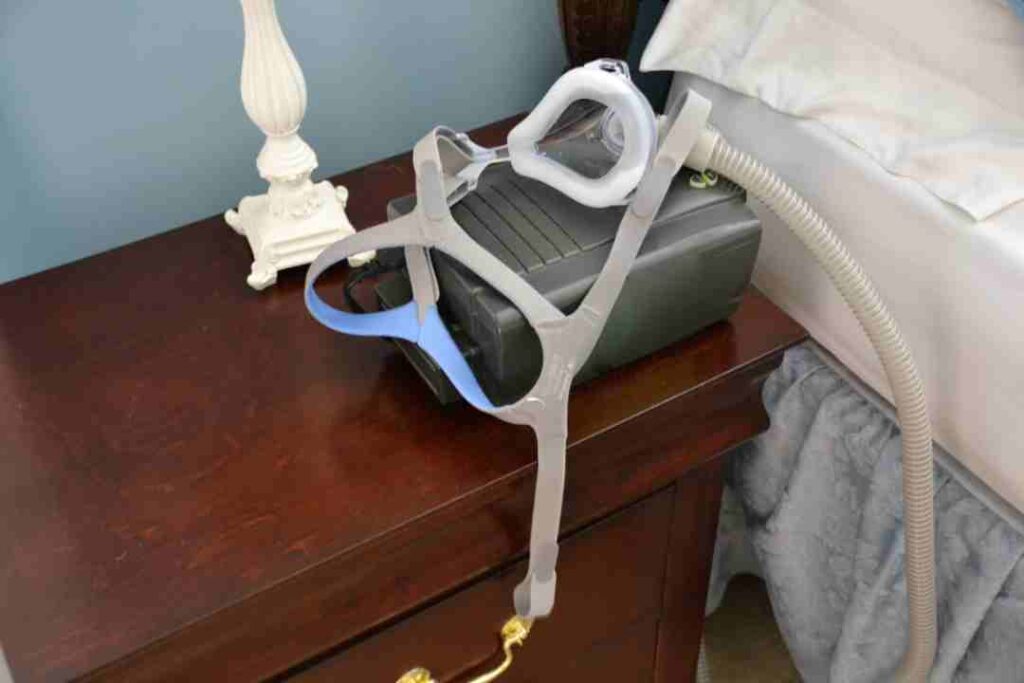Sleep apnea is a sleep disorder that affects millions of people worldwide. It is characterized by pauses in breathing or shallow breaths during sleep. This interruption in breathing can happen multiple times throughout the night, leading to disrupted sleep and a range of health problems. Fortunately, the use of CPAP (Continuous Positive Airway Pressure) machines has revolutionized the treatment of sleep apnea, improving overall well-being for those who suffer from this condition.
Understanding Sleep Apnea
Sleep apnea is a condition that occurs when the muscles in the back of the throat fail to keep the airway open during sleep. This can result in breathing interruptions that can last from a few seconds to a minute or longer. The two main types of sleep apnea are obstructive sleep apnea (OSA) and central sleep apnea (CSA).
What is Sleep Apnea?
Obstructive sleep apnea occurs when the throat muscles relax and block the airway. This blockage can lead to a decrease in oxygen levels in the blood, causing the brain to briefly wake up in order to restore normal breathing. These awakenings are often so brief that individuals do not remember them, but they can disrupt the sleep cycle and prevent restorative sleep.
Central sleep apnea, on the other hand, happens when the brain fails to send the proper signals to the muscles that control breathing. This can be due to a variety of factors, including certain medical conditions, medications, or even high altitudes. Unlike OSA, central sleep apnea is less common and often requires specialized treatment, and there is many option available for CPAP mask online for your Sleep Apnea treatment.
Common Symptoms of Sleep Apnea
Sleep apnea can manifest in a variety of symptoms, including loud snoring, excessive daytime sleepiness, morning headaches, and difficulty concentrating. These symptoms can significantly impact an individual’s quality of life, as they may struggle to stay awake during the day or feel irritable and moody due to lack of restful sleep.

In addition to these common symptoms, sleep apnea can also cause other health issues. Individuals with sleep apnea may experience nocturia, which is the need to wake up multiple times during the night to urinate. This can further disrupt sleep and contribute to feelings of fatigue and exhaustion.
The Long-Term Effects of Sleep Apnea on Health
Living with untreated sleep apnea can have detrimental effects on overall health. The constant interruptions in breathing can increase the risk of developing chronic conditions such as diabetes, obesity, and depression. Sleep apnea has also been linked to an increased risk of cardiovascular problems, including high blood pressure, heart disease, and stroke.
Moreover, sleep apnea can impact the body’s immune function. The repeated drops in oxygen levels during sleep can lead to oxidative stress, which can weaken the immune system’s ability to fight off infections. This can make individuals with sleep apnea more susceptible to respiratory infections, such as colds and flu.
Furthermore, untreated sleep apnea can have a negative impact on cognitive function. The lack of restorative sleep can impair memory, attention, and concentration, making it difficult to perform daily tasks and affecting overall productivity. Visit https://txccr.org/what-are-hybrid-cpap-masks/ to read about What Are Hybrid CPAP Masks?
It is important to seek medical attention if you suspect you or a loved one may have sleep apnea. Diagnosis and treatment can significantly improve both the quality of sleep and overall health.
The Role of CPAP Machines in Treating Sleep Apnea
CPAP machines are commonly recommended for the treatment of sleep apnea. These devices work by delivering a constant stream of air pressure to keep the airway open during sleep. Using a mask that fits over the nose or both the nose and mouth, the CPAP machine provides a continuous flow of air that prevents the throat muscles from collapsing.
What is a CPAP Machine?
A CPAP (Continuous Positive Airway Pressure) machine consists of three main components: a motor that draws in air, a humidifier that adds moisture to the air, and a mask that delivers the air to the user’s airway. These machines are compact and designed to be used at home.
The motor of a CPAP machine is responsible for drawing in air from the environment. It filters the air to remove any impurities or allergens, ensuring that the user breathes in clean and fresh air throughout the night. The motor also regulates the air pressure, maintaining a constant level that is prescribed by a sleep specialist based on the severity of the individual’s sleep apnea condition.
The humidifier component of a CPAP machine adds moisture to the air before it is delivered to the user’s airway. This helps to prevent dryness and irritation in the throat and nasal passages, making the therapy more comfortable and tolerable. The humidifier can be adjusted to different levels of humidity, allowing users to customize their therapy based on personal preferences.
How Does a CPAP Machine Work?
CPAP machines use positive air pressure to keep the airway open during sleep. The prescribed pressure level is determined by a sleep specialist based on the severity of the individual’s condition. By providing a continuous flow of air, the CPAP machine prevents the airway from collapsing, allowing for uninterrupted breathing throughout the night.
When a person with sleep apnea lies down to sleep, the muscles in their throat and tongue relax, causing the airway to narrow or close completely. This leads to pauses in breathing, known as apneas, which can occur multiple times throughout the night. These interruptions in breathing can result in fragmented sleep and a decrease in oxygen levels in the blood.
However, when a CPAP machine is used, the constant stream of air pressure acts as a splint, keeping the airway open and preventing it from collapsing. This ensures that the individual can breathe freely and without interruption, promoting a restful and uninterrupted night’s sleep. Click here to read about Breathing problems.
The Benefits of Using a CPAP Machine
The use of a CPAP machine offers numerous benefits for individuals with sleep apnea. Firstly, it improves sleep quality by ensuring an uninterrupted flow of oxygen throughout the night. This leads to better-rested nights and increased daytime alertness.
By maintaining a constant and optimal level of air pressure, CPAP machines also help to reduce the occurrence of apneas and hypopneas (partial blockages of the airway). This not only improves sleep quality but also reduces the risk of complications associated with untreated sleep apnea, such as high blood pressure, heart disease, and stroke.
Furthermore, the use of a CPAP machine can significantly reduce the risk of developing associated health issues, such as cardiovascular problems and metabolic disorders. Sleep apnea has been linked to an increased risk of heart attacks, irregular heart rhythms, and insulin resistance. By effectively treating sleep apnea with a CPAP machine, these risks can be minimized, promoting better overall health and well-being.

The Impact of CPAP Machines on Overall Wellbeing
The use of CPAP machines has a profound impact on the overall well-being of individuals with sleep apnea. It not only improves sleep quality but also addresses the many related health problems that can arise from untreated sleep apnea.
Sleep apnea is a serious sleep disorder characterized by pauses in breathing or shallow breaths during sleep. These interruptions can occur multiple times throughout the night, leading to fragmented and poor-quality sleep. This not only leaves individuals feeling tired and fatigued during the day but also puts them at risk for a range of health issues.
Improvements in Sleep Quality
By allowing individuals to breathe continuously throughout the night, CPAP machines provide a restful and uninterrupted sleep experience. The machine delivers a constant stream of air pressure, keeping the airway open and preventing the collapse of soft tissues in the throat that cause breathing interruptions.
With the use of CPAP machines, individuals experience a significant improvement in sleep quality. They are able to achieve the deep, restorative sleep necessary for optimal physical and mental functioning. As a result, they wake up feeling refreshed and rejuvenated, ready to take on the day.
Furthermore, the improved sleep quality offered by CPAP machines has a ripple effect on various aspects of wellbeing. It enhances cognitive function, memory, and concentration, allowing individuals to perform better at work or school. It also strengthens the immune system, reducing the risk of illness and promoting overall health.
Reduction in Daytime Fatigue
One of the most common symptoms of sleep apnea is excessive daytime sleepiness. This persistent fatigue can have a detrimental impact on daily activities, impairing productivity and increasing the risk of accidents and injuries due to impaired attention and reaction times.
The use of a CPAP machine can effectively alleviate this symptom, allowing individuals to feel more rested and alert during waking hours. By ensuring a continuous and adequate supply of oxygen throughout the night, CPAP machines help to combat the daytime fatigue associated with sleep apnea.
As a result, individuals can engage in their daily routines with increased energy levels, improved mood, and enhanced overall wellbeing. They can fully participate in social activities, pursue hobbies, and enjoy quality time with loved ones without being hindered by constant exhaustion.
Long-Term Health Benefits of Using CPAP Machines
Using a CPAP machine not only improves immediate wellbeing but also has long-lasting health benefits. By reducing the frequency and severity of breathing interruptions, CPAP machines help to lower blood pressure, reduce the risk of cardiovascular diseases, and improve metabolic function.
Sleep apnea has been linked to an increased risk of hypertension, heart disease, stroke, and diabetes. The consistent use of CPAP machines can mitigate these risks by ensuring that individuals receive the necessary oxygen supply and maintain healthy oxygen levels throughout the night.
Moreover, CPAP therapy has been shown to improve insulin sensitivity and glucose control, making it an essential component in the management of diabetes. By promoting better metabolic function, CPAP machines contribute to overall health and reduce the risk of long-term complications.
Furthermore, the use of CPAP machines can also alleviate symptoms associated with sleep apnea, such as chronic headaches, mood disturbances, and sexual dysfunction. By addressing these issues, individuals can experience an improved quality of life and enhanced overall wellbeing.
In conclusion, CPAP machines have a significant impact on the overall wellbeing of individuals with sleep apnea. They improve sleep quality, reduce daytime fatigue, and offer long-term health benefits. By providing a restful and uninterrupted sleep experience, CPAP machines contribute to better cognitive function, increased energy levels, and improved overall health. It is crucial for individuals with sleep apnea to recognize the importance of CPAP therapy and prioritize its consistent use to optimize their wellbeing.
Living with a CPAP Machine
Adjusting to using a CPAP machine can take some time, but with proper support and guidance, individuals can successfully integrate it into their daily lives.
Adjusting to a CPAP Machine
Initially, wearing a mask while sleeping may feel unnatural and uncomfortable. It is important to give yourself time to adjust to the sensation and to work closely with your healthcare team to ensure the right fit and settings for your specific needs.
Maintenance and Cleaning of CPAP Machines
Regular maintenance and cleaning of the CPAP machine and accessories are essential for optimal performance and hygiene. Follow the manufacturer’s instructions for cleaning and replacing filters, and ensure that the humidifier chamber is kept clean and free of mineral deposits.
Tips for Maximizing Comfort and Effectiveness
There are various tips and tricks that can help make the use of a CPAP machine more comfortable and effective. This includes adjusting the mask fit, using a heated humidifier to prevent dryness, and keeping the machine clean and free from dust.
In conclusion, sleep apnea is a serious condition that can have far-reaching effects on overall health. However, with the use of CPAP machines, individuals can significantly improve their sleep quality and overall wellbeing. By ensuring a continuous flow of air, these machines help keep the airway open, reduce the risk of associated health problems, and contribute to a better quality of life.

